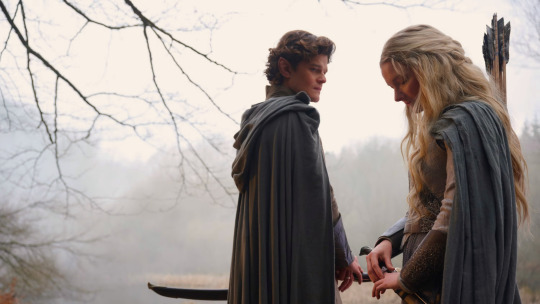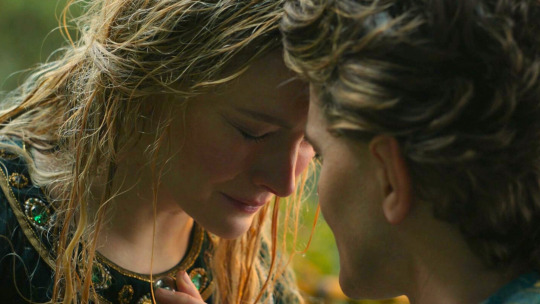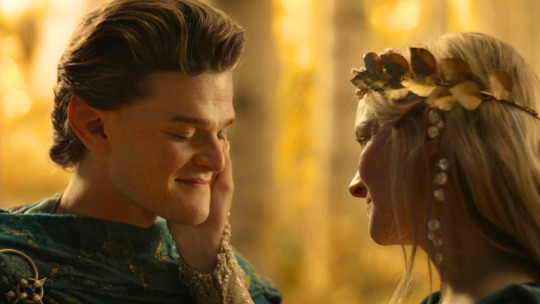#the clearing podcast
Explore tagged Tumblr posts
Text

This was made because I read a fic "Proximity" by rosesofenvy and now i'm yearning.
#plsss the creator of the fic dm because for some reason the link for tumblr on ao3 doesn't work and i can't tag you :(#malevolent#malevolent podcast#arthur lester#john doe#jarthur#my art#you know its funny cause i dont like fully ship them like i prefer them queerplatonic but everytime i draw them it turns love dovey#this is based of of a painting if that wasnt clear#John looks amazing here but i can never get Arthur quite right when i do these#im very proud of the shirts tho and like the render in general
1K notes
·
View notes
Text








what if…. Noel centric angst? ever think about that?
#more like Noel centric hurt/comfort but WHATEVER#they…………………..#IF ITS NOT CLEAR he had an awful kiy nightmare and was freaking out when we jolted awake#Oscar here to lend a shoulder to sob in and a lap to fall asleep on#artists on tumblr#malevolent#malevolent fanart#malevolent podcast#oscar malevolent#detective noel#noel malevolent#charlie dowd#holy ghosts
943 notes
·
View notes
Text
Malevolent intermezzo u are so important to me.


#malevolent#john doe malevolent#malevolent fanart#malevolent podcast#arthur lester#kayne malevolent#malevolent arthur#hashtag im clearing out my drafts…OLDDDDD
368 notes
·
View notes
Text
my codotverse designs :3 I love rogues! the podcast so much


Genuine question, I know Jon has a canon design, but does Edward? I've looked everywhere and just can't find one.
#jonathan crane#dc fanart#riddler#batman#batman comics#dc comics#edward nygma#dc#the scarecrow#riddler scarecrow#codotverse#scriddler#gotham rogues#rogues! the podcast#help i cant find a clear picture of jon's canon design
239 notes
·
View notes
Text

LA-KiY AU OC, Richard Joy. Currently The King's High Priest after the previous one, his father, was killed by Arthur and Parker. (They tried to arrest him, but things escalated).
Richard is a special human to The King. He has the honour of speaking directly to The King and becomes his eyes, ears, and mouth as The King's new High Priest.
Heehee finally finished the page huhuhu.






Short explanation:
Before he transitioned, he was a student in art uni who loved sculpting. He had forced himself to conform with his previous identity and convinced himself that he was fine with it though the truth was more that he rejected the cult his father ran. His father had told him that The King would accept him and value his skill as an artist above human social standards.
One day, he decided to prove to himself that he is content with his identity and body by sculpting a full body statue of himself. He couldn't finish it as the more he chiseled, the more horrid his body looked. He stopped in frustration and turned away from his work. But, when he looked upon the statue again, a yellow glow seemed to illuminate the statue and mold it into another form. It became the body that Richard dreamed to have. He was enchanted but also horrified at the event. He ran away to his bedroom with high fever and forced himself to sleep.
That night, Richard dreamt of The King's embrace. Steady and gentle hands traced his body that did not fit him. Then, pain and agony. His body chiseled and broken over and over again, before many arms embraced him as if holding a newborn child.
When Richard woke up in the morning, he found himself changed into someone new. For the first time, he felt like who he was supposed to be. Happy was an understatement. He decided he needed to offer something back to The King in Yellow to express his gratitude.
Back in his art uni, he decided he would sculpt a statue of The King. He imagined the same King he met in his dream and allowed his body to be moved as stone meets chisel. Students and lecturers passed by and were drawn to the statue, as if a hidden force was guiding them.
The stone didn't carve like normal, it changed, transformed, as if something was filling it. Finally, it became the form of The King in Yellow. Everyone who observed it snapped back to reality, and as their screams filled the scene, The King, possessing the statue, ate away at their sanity. Richard only had eyes for The King.
Ref 👇

Feel free to ask about him if ya want. Hehe.
#malevolent#malevolent podcast#art#malevolent fanart#digital art#artist on tumblr#support human artists#malevolent oc#malevolent au#LA-KiY Richard Joy#Lore Accurate KiY AU#his personality is *giggles cutely while committing homicide*#if it wasn't clear he's a trans man#and yes The King quite literally gave him gender affirming healthcare and now he forever loves Hastur for it#I'm still figuring out their dynamic but Richard is pretty chill#just pray The King doesn't ask him to kill you
313 notes
·
View notes
Text

the horrors are never-ending, but at least there’s Waffles??
#my art#my doodles#red valley#red valley podcast#gordon porlock#warren godby#waffles the tortoise#tortoise dads? tortoise dads! :)#(ughhuh absent dads if we’re being honest BUT NONETHELESS)#I should really be going to bed but there hasn’t been an all clear for the fucking shaheds yet and I’m a bit too on edge to fall asleep#so I’m rewatching the phantom of the opera and posting doodles lol
176 notes
·
View notes
Text

good evening magnus archives community. please take this meme idea from when i first learned elias canonically does weed
#the implication is that elias killed gertrude. and because of the weed. if thats not clear#im currently finishing up s2 dont spoil me intentionally if anyone sees this#the magnus archive fanart#the magnus archives#tma#tma fanart#tma podcast#magnuspod#elias bouchard#gertrude robinson#tma shitpost#e.png
403 notes
·
View notes
Text

Happy c3 finale day! Dani organized a giant collab featuring over 50 artists to make posters for each arc! It was wonderful to participate in and the posters came out so incredibly!
[Image descriptions in Alt text, credits below the cut]








Credits:




[ID: Credit lists for all of the artists. The artists on tumblr are: @sideblogdotjpeg, @apricots-on-a-holiday, @tiredbread, @caseydoingart, @charlilil, @crudelise, @voxphantasma, @beakyelk, @naddpilled, @falchion-art, @purplecladmerchant, @futuralibre, @stone-stars (me), @the-crab-king, @bookinbear, @lobstermigration, @one-little-nerd-stayed-home, @duck-speak, @kyeree, @lyssq, @a-majus, @ihavemints, @nullifi-blr, @ghostedflakes, @s0laart, @vaguenostalgiainvading, @strelitzien-gewaechs, @kindleaf, @vitevii, and @rizwalda.]
Thanks for everyone who participated, it was so fun <3
#naddpod#ba2mia#naddpod campaign 3#not another d&d podcast#duck team#calliope petrichor#sol bufo#calder kilde#i am not tagging Every npc#but they feel important#also to be clear i had permission to port this onto tumblr lol
155 notes
·
View notes
Text
People keep talking about the whimpering horror podcast men and how distracting it can be but as a (maybe) asexual person, all I ever heard were men in pain. Other people find the whimpering weirdly erotic while I hear a guy in desperate need of a Hospital and a Therapist
#“Hahah he is whimpering so much people will think Im listening to porn”#he is in immense amounts of physical and emotional pain?????#if it wasnt clear this is mostly about Jonathan Sims and Arthur Lester since those are the 2 I know get mentioned the most#but feel free to think about anyone else#also im not hating#sexualize that man#god knows he needs a break from the torture#tag time#the magnus archives#tma#jonathan sims#tma jonathan sims#malevolent#malevolent podcast#arthur lester#malevolent arthur#podcasts#horror podcast
338 notes
·
View notes
Text
multiple things can be true at once
1) the allegations against neil gaiman seem very likely to be true, because i cannot fucking imagine that having sex with an employee relying on you and your money to avoid homelessness (and starting within a few HOURS of meeting her) could ever be a situation with unproblematic consent
2) the podcast seems to be very exploitative – first, the use of ads/sponsorships; second, the sensationalism of the story and using dramatic music and editing; and third, its general anti-BDSM narrative and it is deeply fucked up to use victims’ stories to put forward your own narrative or agenda
3) this being reported by rachel johnson just has terrible vibes, i am absolutely with everybody on this, i don’t believe she has the victims’ best interests at heart and i am suspicious of her personal motivations
#just to be 100% clear on this I BELIEVE THE VICTIMS. what i am saying is my dislike of the podcast and suspicion of rachel johnson#does not change the fact that i believe the victims' stories#neil gaiman
402 notes
·
View notes
Text
some lesbian thoughts on elrond & galadriel

The dynamic between Elrond and Galadriel, despite being central to the show, sometimes feels under-appreciated in the fandom. Like many relationships in TROP, it doesn’t easily slot into a single category. It’s not merely one of friendship or kinship or mentorship

It’s not romantic, but it is emotionally intimate—and that seems to trip a lot of people up, even before 2x07. We’ve always appreciated how emotionally open Galadriel and Elrond are with each other, particularly given how guarded Galadriel is with most other characters.

She and Elrond have a long history prior to their reunion in the first episode, and during the course of the show they rely on each other as they navigate disappointment and loss, both personal and as relates to elven-kind.

They don’t always see eye to eye, but even when Elrond feels hugely betrayed by Galadriel’s choices, it doesn’t erode the love between them.

They’ve been separated during their respective darkest moments, but find solace and healing in each other’s presence. They bring light into each other’s lives, and together will be instrumental in banishing the rising darkness.

One of the strengths of Tolkien's work, and one of the reasons fans (including queer fans like us) return to these stories time and again, is the focus on platonic bonds that defy societal norms through the strength of their intimacy and commitment.

Of all the relationships we've seen on the show so far, Galadriel and Elrond embody this wonderful category-defying emotional intimacy most of all.
#elrond#galadriel#rings of power#the rings of power#lotr trop#trop#lotr on prime#rop#rings of power podcast#wtslpod#anyway the discourse about them has been something else!#as two gays who absolutely loved their dynamic in s1 as well as s2#and for whom That Scene in 207 largely worked#we just had some feelings we needed to share#mainly that the intimacy between them has been clear from the beginning#and that from the beginning people have also been weird about it and read a lot of stuff into their relationship#that simply isn't there#anyway that's all for now from the queer platonic lesbian bestie truthers#read that in any way you'd like 😌#trop spoilers#just to be safe!#also TO BE CLEAR we are not pretending to speak for all lesbians lol#but our perspectives as lesbians are absolutely part of our take on this relationship
166 notes
·
View notes
Text
wip atlantasia animatic,,,, ouhhhh. ep 43 i think??? The witch???
#art#malevolent#malevolent podcast#malevolent fanart#john doe#john doe malevolent#the witch malevolent#idk how clear it is but that one part at the end is john looking at his reflection in the puddle of Arthur’s blood
67 notes
·
View notes
Text

Class doodles
#I believe he feels too indebted#Too grateful#And it's a burden on a god#He grew to count Arthur as his equal but you see him giving up his status as god slowly to clear his debt#malevolent#arthur lester#john doe#podcast#malevolent fanart#original art#fanart#malevolent podcast
167 notes
·
View notes
Text


a little birdie ( @sarcasticscribbles **lmk if you don’t wanna be tagged ) once said that one image reminded them of tim and sasha/not!sasha so uh
#i wanted to make this its own post instead of a reblog because it took a while 👍#uh huh#clears throat#the magnus archives#tma podcast#rusty quill#timsasha#timothy stoker#sasha james#not!sasha#tma spoilers#my art#bugza draws n such#🌧️
130 notes
·
View notes
Text
wow all the skaldova pcs are hardwon homages
boggy: has lucky, is a battlemaster
zurdric: loves crows
welly: a poet
91 notes
·
View notes
Text
i think the most important thing about me is that everything i say about will wood must be read in the context of litwtc and not of him as a musician
#basically if you reference one of his songs under my shit i'll smite you#i'm kidding mostly but god damn is it clear that a lot of my followers don't listen to the podcast#not on here you guys are actually pretty chill#idk what i'm going on about i'm real tired and my head's no good#guys i really really really miss litwtc
57 notes
·
View notes